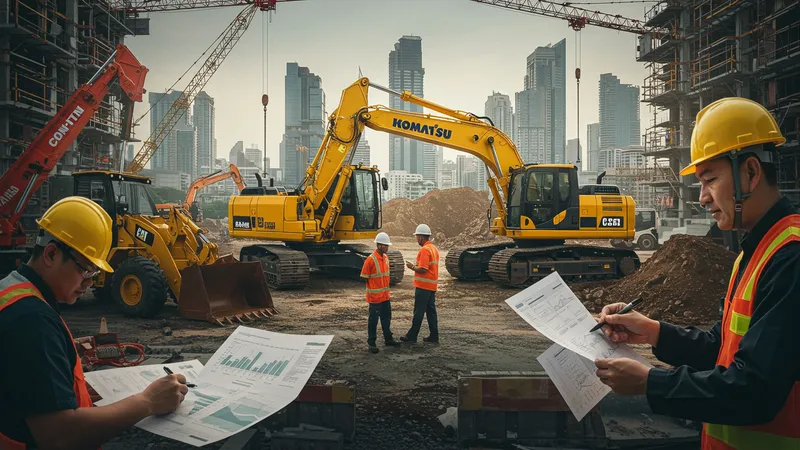
How To Choose The Right Construction Machinery In Thailand
Cost Considerations and Financing Options in Thailand
In Thailand, price transparency and long-term value are decisive factors for construction machinery purchases. Equipment investment goes well beyond the initial sales figure. Thai buyers routinely calculate the total cost of ownership, including fuel consumption, maintenance expenses, spare parts pricing, and expected depreciation over several years.

Financing structures are influential in this market. Many suppliers in Thailand offer tailored payment plans and leasing options to suit project-based budgets. This enables small and medium-sized contractors to access new, higher-spec equipment without large upfront cash outlay, a model common among Komatsu and Caterpillar dealers in Bangkok and regional centers.
Import taxes and duties on heavy equipment also impact budgeting. Machinery manufactured or assembled in ASEAN countries may carry lower duties, which can shift preferences among local buyers. Comparing multiple suppliers for their inclusive packages—bundling warranty service, free parts for a set time, or operator training—can result in significant long-term savings.
Considering resale value is essential too. Brands with established dealer networks and strong reputations, such as Hitachi, tend to maintain higher residual values. Thai contractors often check historical pricing and auction trends as part of their asset planning strategy, ensuring their equipment can be liquidated without steep value loss if project needs change.